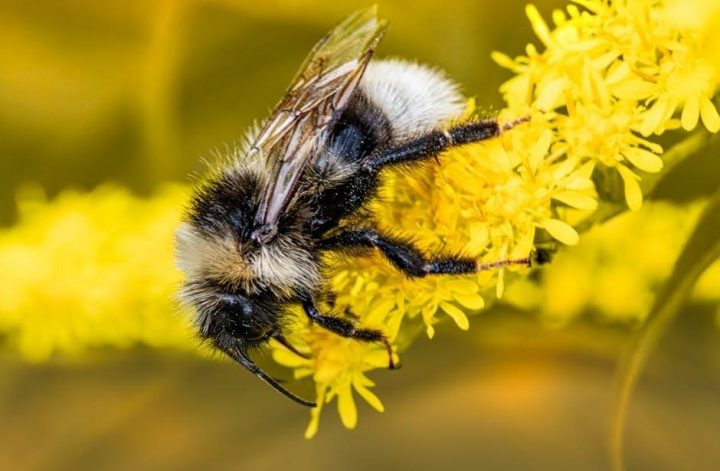Black Soldier Fly (BSF) farming offers a sustainable solution for protein production and organic waste management. This article explores the design principles for efficient BSF farming systems.
What is Black Soldier Fly Farming?
Black Soldier Fly farming is the practice of culturing Hermetia illucens larvae for protein production. These larvae efficiently decompose organic waste‚ offering a sustainable solution for both animal feed and waste management. BSF farming is recognized for its environmental benefits and is increasingly adopted globally. This method is scalable and supports eco-friendly agriculture by converting waste into valuable resources.
Importance of BSF Farming for Sustainable Protein Production
Black Soldier Fly farming is a sustainable method for producing high-quality protein‚ essential for animal feed. It reduces reliance on wild fish stocks and offers an eco-friendly alternative to traditional livestock feed. BSF farming lowers greenhouse gas emissions‚ supports circular economy principles‚ and provides a reliable protein source for small-scale agriculture‚ making it a vital component of sustainable food systems.
Purpose of the Article
This article provides a comprehensive guide to designing and operating a Black Soldier Fly (BSF) farm‚ focusing on sustainable protein production. It outlines key design principles‚ best practices‚ and practical considerations for setting up efficient farming systems. The goal is to help readers understand how to create a functional and sustainable BSF farm‚ leveraging organic waste and producing high-quality protein for animal feed.
Benefits of Black Soldier Fly Farming
BSF farming provides high-quality protein for livestock‚ manages organic waste efficiently‚ and offers an eco-friendly alternative to traditional farming. It reduces greenhouse gas emissions and land use.
High-Quality Protein Source for Livestock
Black Soldier Fly larvae are rich in essential amino acids‚ making them an excellent protein source for poultry and fish. They provide a sustainable alternative to fishmeal and soybean‚ reducing reliance on resource-intensive feed. Their amino acid profile supports healthy growth in livestock‚ ensuring high-quality meat and egg production while minimizing environmental impact.

Organic Waste Management Solutions
Black Soldier Fly farming converts organic waste into valuable biomass‚ reducing landfill dependency. The larvae efficiently decompose food and agricultural waste‚ minimizing environmental pollution. This eco-friendly process recycles nutrients‚ offering a sustainable waste management solution while producing protein-rich feed for livestock‚ thus addressing both waste disposal and resource recovery challenges effectively.
Eco-Friendly and Sustainable Farming Practice
Black Soldier Fly farming is an eco-friendly practice that converts organic waste into protein-rich biomass‚ reducing landfill use and greenhouse gas emissions. It requires minimal water and land‚ making it a sustainable alternative to traditional livestock feed production. The closed-loop system recycles nutrients‚ ensuring efficient resource use and promoting a circular economy; This method aligns with global sustainability goals‚ offering an environmentally responsible farming solution.

Space and Layout Considerations
Optimizing space is crucial for efficient BSF farming. Stackable container designs and modular layouts maximize capacity while minimizing land use‚ ensuring sustainable and scalable operations.
Optimizing Farm Space for Efficiency
Efficient space utilization is achieved through vertical stacking and modular designs. Multi-level systems maximize land use while maintaining optimal conditions for larvae growth and waste management. Proper layout planning ensures smooth workflows‚ reducing labor and enhancing productivity. Automation and precise feedstock allocation further optimize operations‚ making BSF farming both space-efficient and environmentally sustainable.
Stackable Design for Maximum Capacity
Stackable systems significantly increase farming capacity without expanding land use. Modular containers or trays are arranged vertically‚ allowing for efficient larvae cultivation and waste processing. This design optimizes resources‚ reduces footprint‚ and enables scalable production. Stackable units also simplify monitoring and maintenance‚ ensuring consistent output while minimizing operational challenges. This approach is ideal for both small-scale and large-scale BSF farming operations.
Feeding Systems for BSF Larvae
BSF larvae thrive on organic waste‚ making them a sustainable feedstock solution. Automated feeding systems ensure consistent nutrient delivery‚ optimizing growth and reducing manual labor requirements.
Organic Waste Utilization as Feedstock
Black Soldier Fly larvae efficiently convert organic waste into valuable biomass. Food scraps‚ agricultural byproducts‚ and other biodegradable materials serve as ideal feedstock. This approach reduces waste disposal costs and environmental impact while providing a sustainable‚ nutrient-rich food source for the larvae‚ fostering eco-friendly farming practices and promoting circular economy principles.
Automated Feeding Mechanisms for Consistency
Automated feeding systems ensure consistent and efficient nutrient delivery to BSF larvae‚ optimizing growth rates and reducing labor costs. These mechanisms maintain precise feeding schedules‚ minimizing waste and ensuring even distribution of feedstock. Advanced systems integrate sensors and software to monitor larval needs‚ adjusting feed quantities dynamically for maximum productivity and consistency in larvae development.

Egg Laying and Breeding Chambers
Egg laying chambers are designed to provide optimal conditions for female BSF to deposit eggs‚ ensuring high hatching rates and successful breeding cycles for sustainable larvae production.
Designing Ideal Conditions for Egg Laying
Designing ideal conditions for egg laying involves maintaining a temperature range of 24-30°C and humidity levels around 60-70%. Female BSF prefer sheltered‚ dry cavities near organic matter for egg deposition. Using materials like wood or plastic‚ chambers should provide darkness and protection from predators. Ensuring cleanliness and proper ventilation optimizes egg-laying success and hatching rates.
Female Fly Behavior and Breeding Strategies
Female Black Soldier Flies typically lay 300-600 eggs near decaying organic matter. Breeding strategies involve attracting females to sheltered‚ dry areas with adequate airflow. Males are introduced for mating‚ and optimal conditions like controlled temperature and humidity enhance reproductive success. Managing fly behavior through appropriate chamber designs and feedstock placement ensures efficient egg production and colony sustainability.
Larvae Separation and Harvesting
Efficient larvae separation involves automated systems or manual sorting using sieves. Proper techniques ensure optimal yield while maintaining larvae quality for protein production or further processing.
Efficient Methods for Larvae Sorting
Efficient larvae sorting involves sieving or automated systems to separate larvae by size. Manual sieves are cost-effective for small-scale farms‚ while automated systems improve efficiency for large-scale operations. Proper sorting ensures larvae of uniform size are harvested‚ maintaining quality and integrity for further processing or feeding. Regular cleaning and hygiene practices are essential to prevent contamination during the sorting process.
Harvesting Techniques for Optimal Yield
Harvesting BSF larvae at the late instar stage ensures maximum size and weight for optimal yield. Techniques include manual scooping or automated systems with conveyor belts. Timing is critical‚ as over-mature larvae may pupate‚ reducing edible biomass. Hygiene practices‚ such as cleaning tools and storage containers‚ are essential to maintain quality and prevent contamination during the harvesting process.

Waste Management and Recycling
BSF farming integrates organic waste processing‚ converting food scraps into nutrient-rich biomass. Recycling nutrients through composting or animal feed enhances sustainability and reduces environmental waste effectively.
Integration of Waste Processing Systems
Black Soldier Fly farms often incorporate waste processing systems to streamline organic waste conversion into nutrient-rich biomass. These systems include composting units‚ anaerobic digesters‚ and waste sorting facilities. By integrating these components‚ farms achieve efficient waste-to-resource cycles‚ reducing landfill use and enhancing sustainability. Advanced designs may include bioponds and dedicated processing rooms‚ ensuring seamless waste management and resource recovery‚ aligning with eco-friendly practices.
Recycling Nutrients for Farm Use
Black Soldier Fly farms often recycle nutrients by converting organic waste into larval biomass and residue. The residue‚ rich in nutrients‚ can be composted or used as natural fertilizer‚ enhancing soil health and reducing the need for synthetic inputs. This closed-loop system maximizes resource efficiency and supports sustainable farming practices‚ aligning with eco-friendly agricultural goals.

Environmental Impact and Regulations
BSF farming reduces environmental impact by converting organic waste into valuable resources‚ lowering greenhouse gas emissions‚ and offering a sustainable alternative to traditional feed production methods.
Evaluating the Environmental Benefits
BSF farming significantly reduces environmental impact by converting organic waste into valuable biomass‚ lowering methane emissions‚ and minimizing land use. It offers a sustainable feed alternative‚ reducing reliance on resource-intensive crops like soybeans. Additionally‚ BSF systems promote water conservation and reduce chemical inputs‚ fostering eco-friendly practices that support global sustainability goals.
Compliance with Local Farming Regulations
Ensuring compliance with local farming regulations is crucial for BSF farming operations. This includes obtaining necessary permits‚ adhering to waste management protocols‚ and meeting health and safety standards. Proper documentation and regular inspections are essential to maintain legal operational status. Compliance also involves integrating sustainable practices that align with environmental and agricultural policies‚ ensuring the farm operates responsibly within the community.
Monitoring and Maintenance
Regular monitoring of temperature‚ humidity‚ and feed quality is essential for maintaining optimal conditions in a BSF farm. This ensures healthy larvae growth and efficient waste processing.
Key Parameters for Farm Monitoring
Monitoring temperature‚ humidity‚ and oxygen levels ensures optimal conditions for BSF larvae growth. Tracking feeding rates‚ waste conversion efficiency‚ and larval development stages is crucial for maintaining productivity and sustainability.
Regular Maintenance Practices
Regular cleaning of containers‚ feeding systems‚ and waste management units ensures optimal farm operation. Inspecting equipment for wear and tear‚ maintaining proper ventilation‚ and controlling pest populations are essential. Monitoring larval health and environmental conditions prevents contamination and ensures sustainable production. Consistent upkeep safeguards efficiency and long-term viability of the BSF farming system.

Scaling the Farm Operations
Scaling BSF farm operations involves strategic planning to increase production capacity. Implementing efficient systems and cost-effective solutions ensures sustainable growth and operational efficiency.
Expanding Production Capacity
Expanding BSF production involves scaling up facilities and optimizing processes. Modular designs allow for incremental growth‚ while automation enhances efficiency. Increasing feedstock intake and larvae output ensures higher yields‚ supporting larger-scale operations.
Cost Analysis for Scaling Up
Scaling up BSF operations requires a detailed cost analysis. Initial investments include facility expansion‚ equipment‚ and feedstock. Ongoing expenses cover labor‚ energy‚ and maintenance. While upfront costs are significant‚ the long-term benefits of increased production and waste reduction often justify the investment‚ making BSF farming a financially viable option for sustainable protein production.

Construction Materials and Tools
Durable materials like plastic‚ metal‚ and wood are essential for building BSF farms. Tools such as PVC pipes‚ LED lighting‚ and automated feeders ensure efficient and sustainable operations.
Recommended Materials for Durable Structures
Plastic containers‚ metal frames‚ and wood are ideal for BSF farm construction due to their durability and suitability for stackable designs. PVC pipes and mesh screens are commonly used for feeding systems and ventilation. Durable materials ensure long-term efficiency and sustainability‚ while recycled options like repurposed containers can reduce costs and environmental impact.
Essential Tools for Farm Setup and Maintenance
Essential tools for BSF farm setup include drills‚ saws‚ and measuring tools for constructing stackable designs. PVC pipes and mesh screens are crucial for feeding systems and ventilation. Automated feeding mechanisms ensure consistent larvae feeding‚ while egg-laying trays and sorting tools aid in efficient harvesting. Monitoring devices‚ such as temperature and humidity sensors‚ are vital for maintaining optimal conditions and ensuring farm productivity and sustainability.




